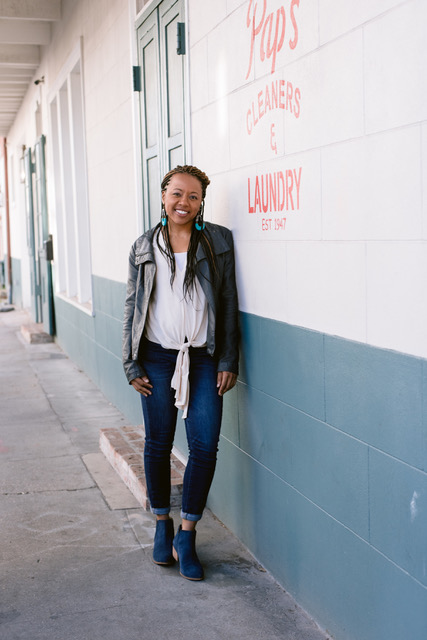Lavender + Lit: An afternoon of poetry in a garden 7/21/19
July proved to be a tough emotional month and I’ve engaged in some light reflection as to why issues are cropping up. Despite these low emotions, I encouraged-dragged myself to attend a poetry at Underground Museumon a Sunday afternoon. I’d missed several other events hosted by The Free Black Women’s Library (FBWL) and couldn’t bear yet another. If you are new to this cool library, it is a mobile trading library comprised of books written by Black women and it's free! Started by OlaRonke Akinmowo in 2015, the library celebrates Black women in literature.
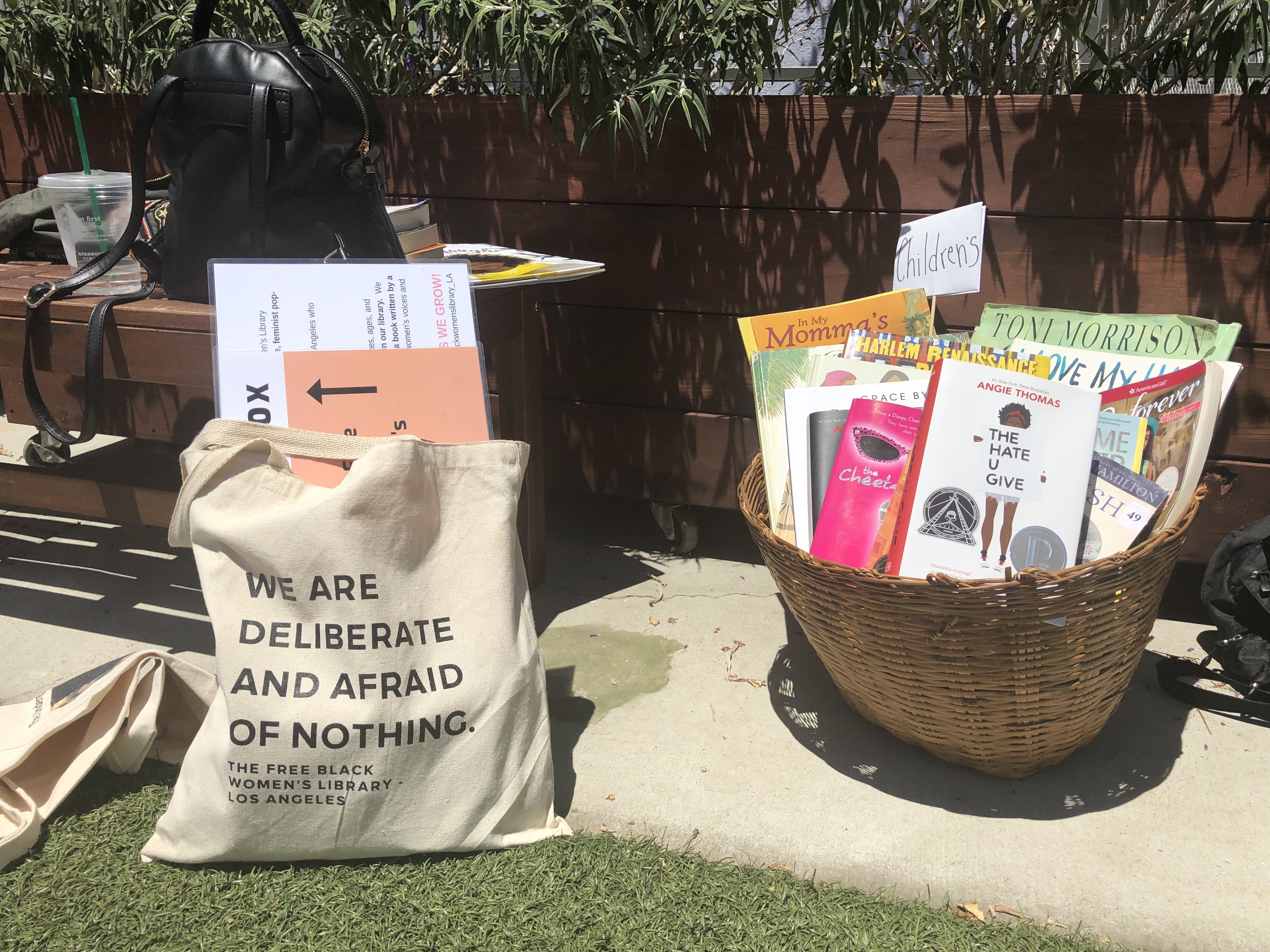
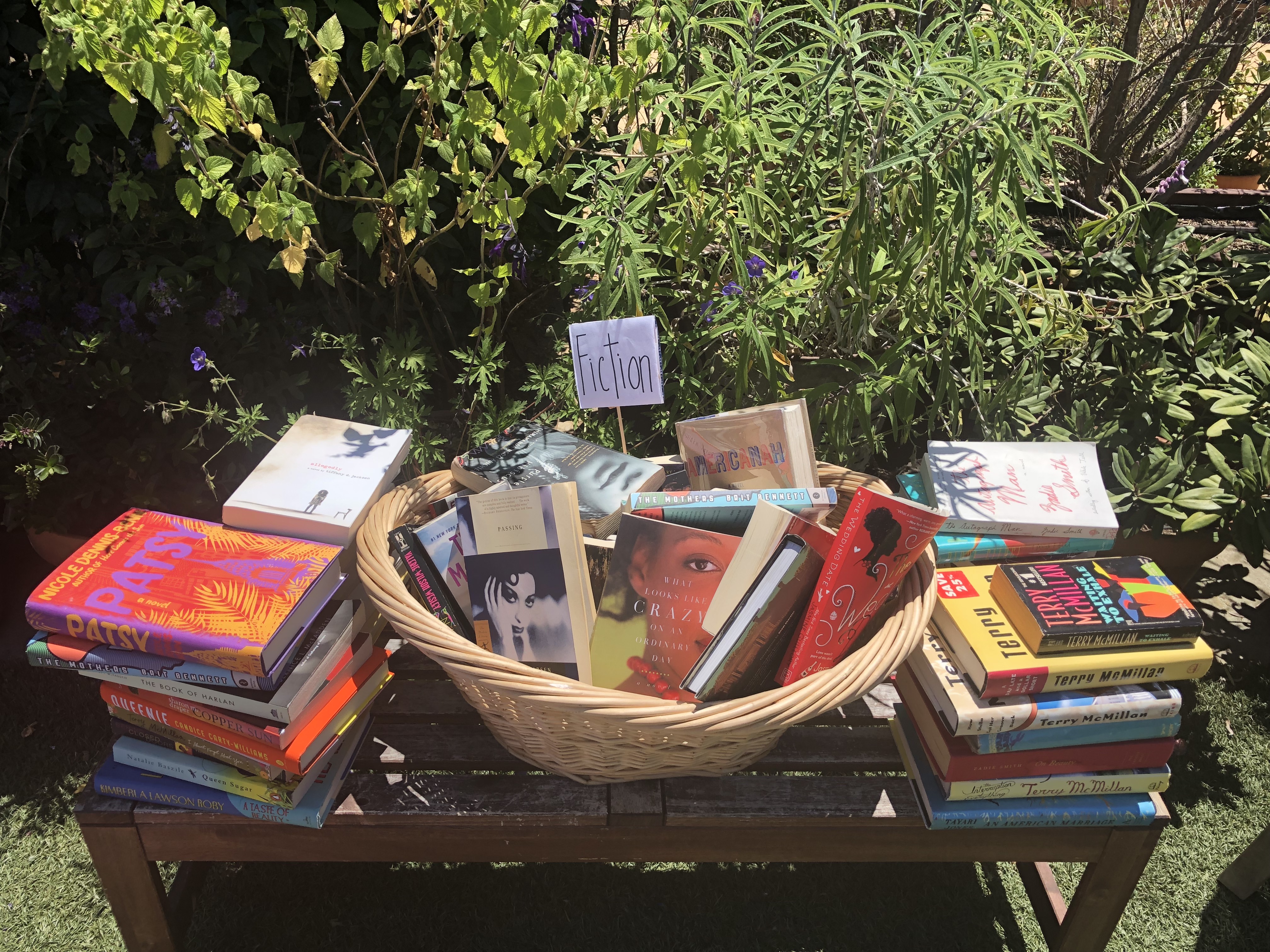
A generously warm and beaming sun lit the day and helped brighten my perspective. Besides, I love poetry and the last reading I attended has long been forgotten.
With this inaugural visit, I felt immersed in culture walking into exhibits that led to the garden. One of the first things I saw was an altar in honor of Nipsey Hussle. It drew me in, calling me to focus on his picture, the offerings, and candles representing his light. After standing in silence, the garden’s beauty became real.
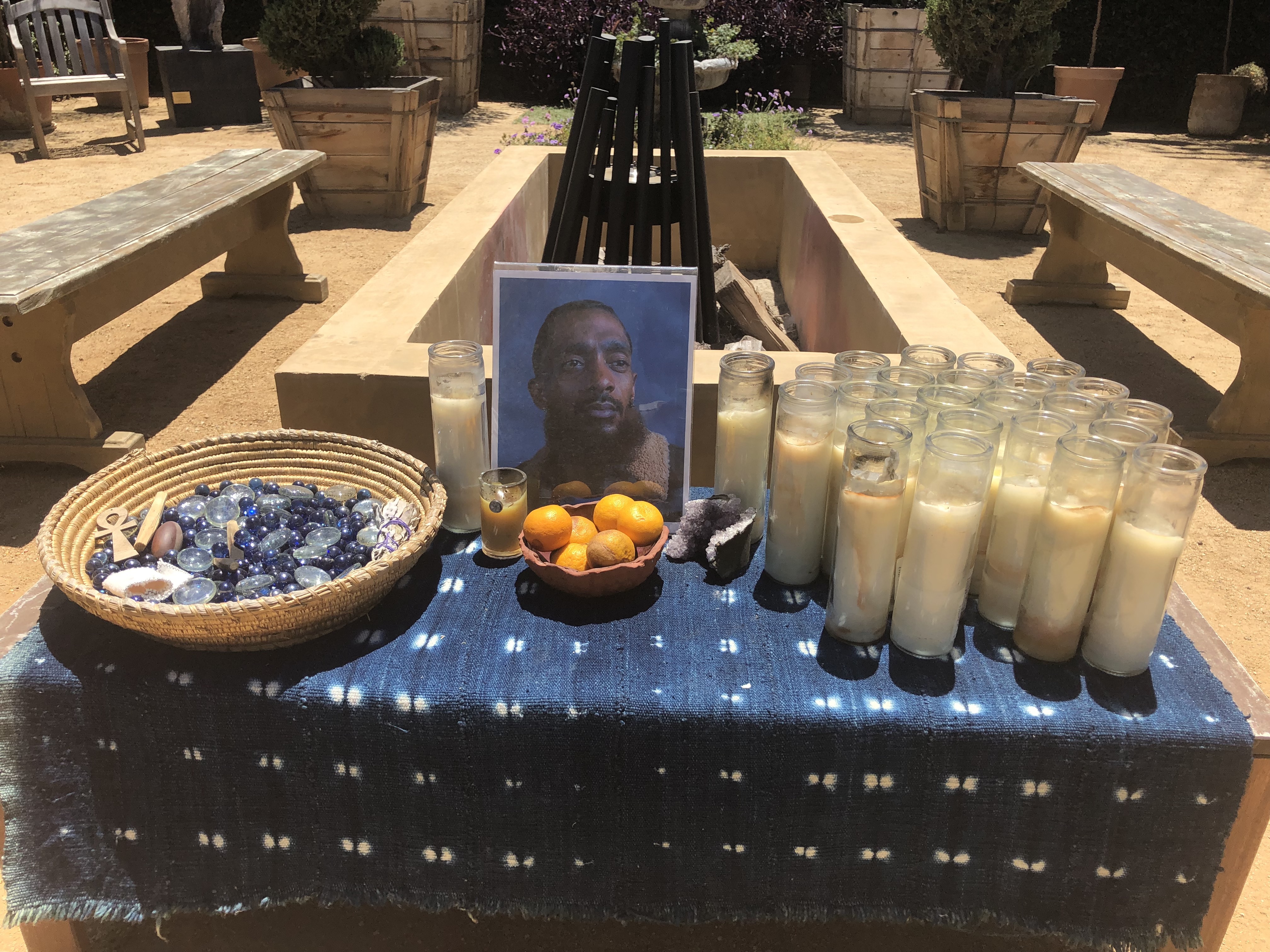
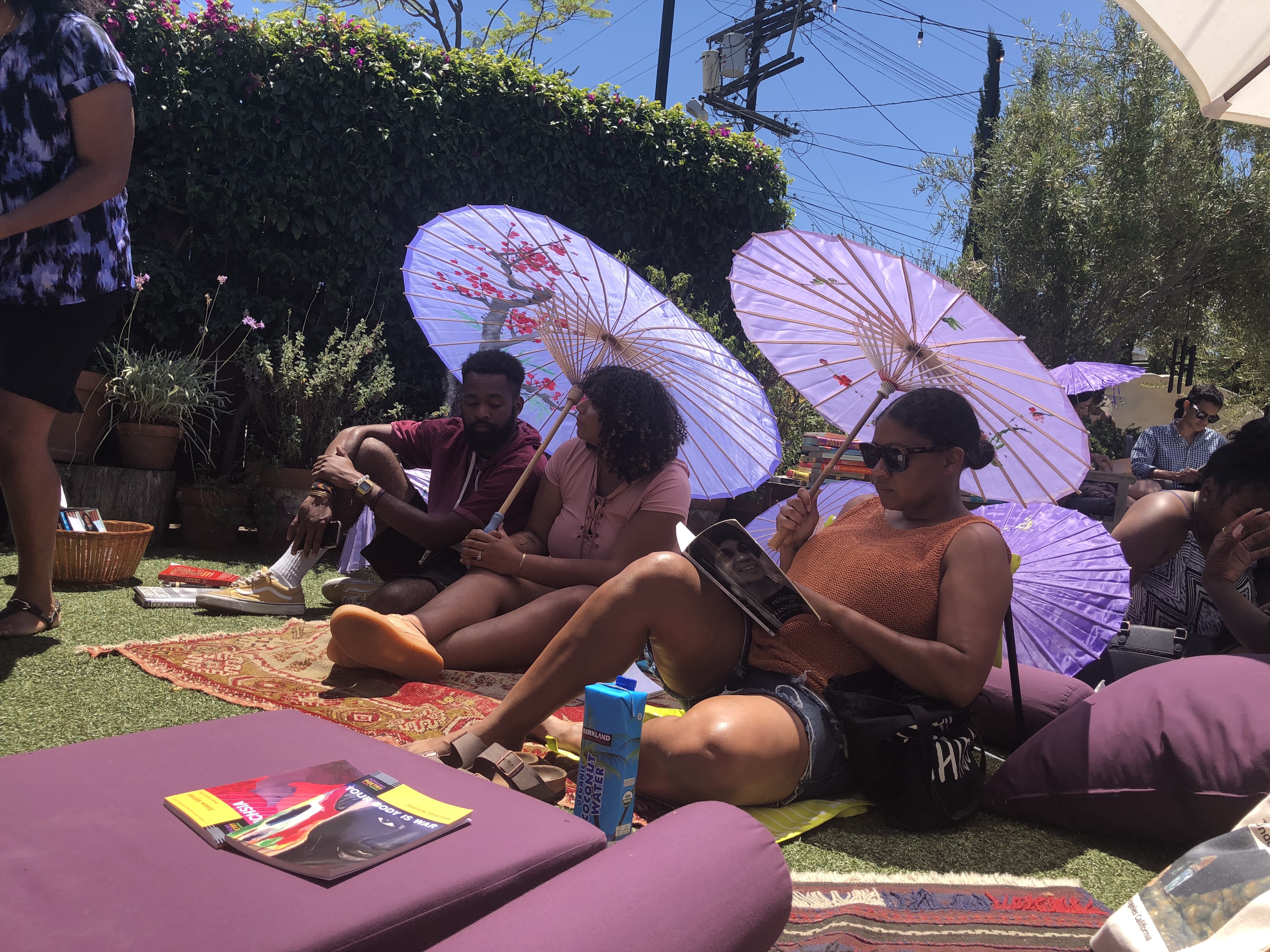
Every shade of lavender was displayed in the rugs, pillows, parasols, and flowers. (If you know anything about me, purple is my favorite color.) And I felt like someone designed the space with injections of purple hues, incense, and flora to appease me.
Asha, the host and founder of FBWL-Los Angeles, welcomed everyone and talked about the flow of the reading and discussion. She invited us to grab a book from the varied genre baskets placed around the garden.
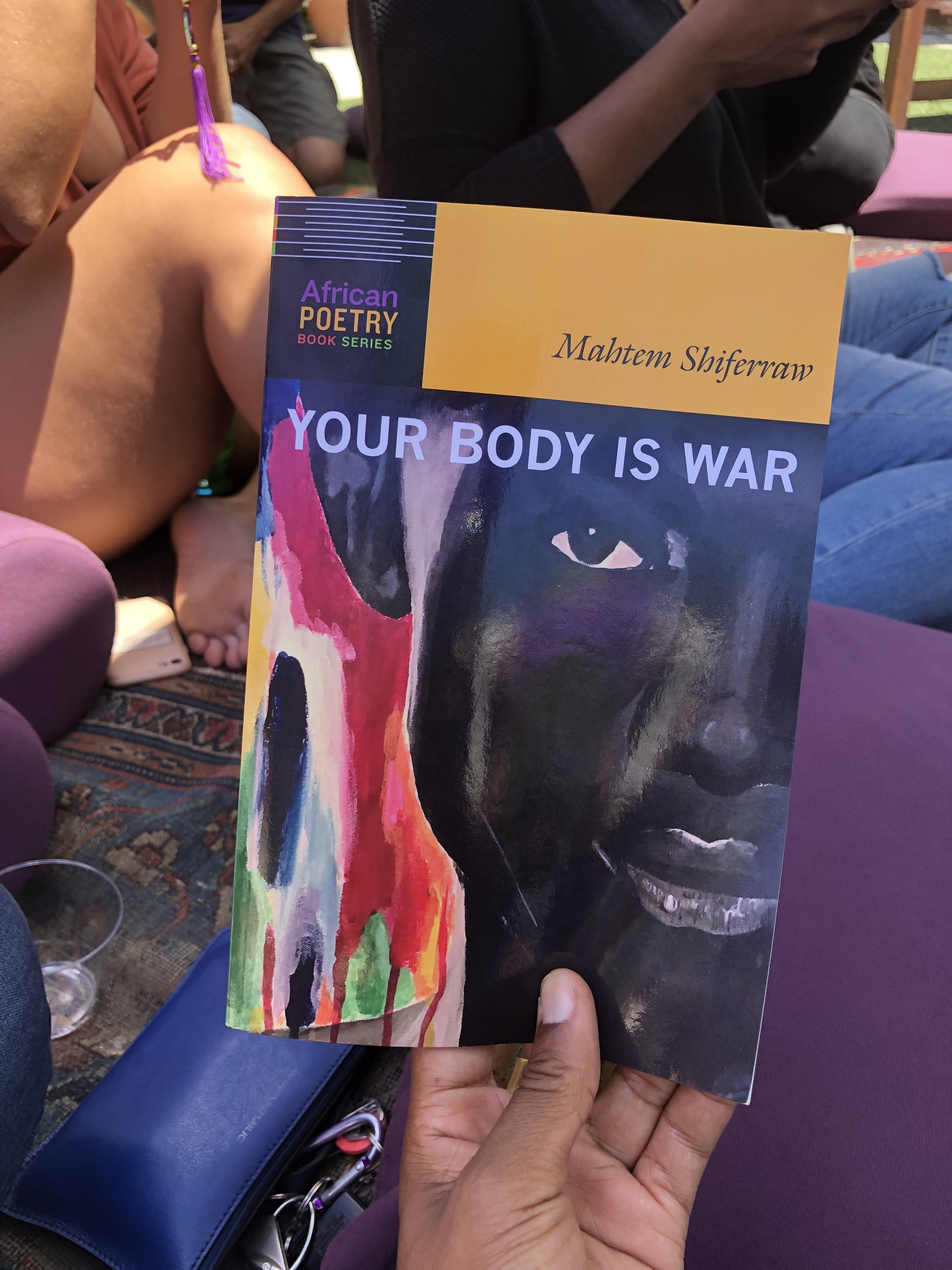
We listened to Mahtem Shiferraw, a gifted writer with Eritrean-Ethiopian roots, read a few selections as she sat almost directly in front of me. She has been writing “as long as [she] can remember.” Her most recent collection of poems, Your Body is War began important conversations about intergenerational trauma, culture, and stories of immigrants from Eritrea and Ethiopia.
Mahtem spoke about the research to coax these painful stories and gain trust in order to get her family members to feel comfortable. She found more success with conversations that occurred during meal time, which allowed for casual and relaxed interactions.
After the reading, I had a chance to ask Mahtem how her family supported or reacted to her work.
She feels that they “trust her telling their stories…[her work] is largely supported, but some haven’t read it, perhaps it’s too raw.” In asking this question, my purpose was to better understand how a different African culture outside of my own manage the topic of traumatic events. It seems that too often families, particularly African families, forge on in spite of trauma, which does not allow for healing. As children and descendants of these loved ones, we inherit their hurt, shame, fear, and trauma. Works like Mahtem’s help to change this awful tradition in order to encourage conversations, healing, and eventually support to others.
The conversation then shifted to unlearning intergenerational trauma, how to cultivate awareness, and doing the work of letting go. In another post, I want to delve into this idea. Shortly after the discussion closed, I left armed with a different perspective on the body and budding ideas about exploring trauma in African communities.
